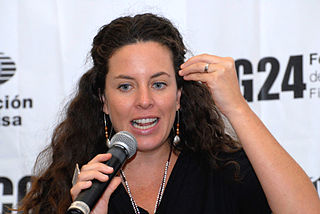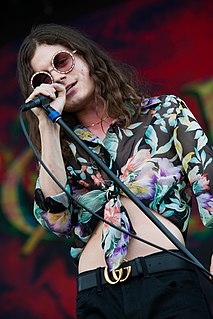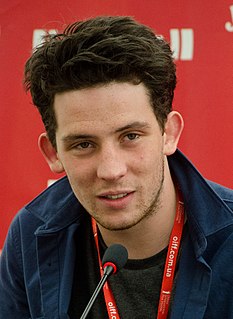A Quote by Asghar Farhadi
The fact that I do place music at the end of my films is not to accentuate the emotion. It serves an opposite purpose which is to remove them from the emotional space and allow them to enter a space of thinking, because I believe that when the audience is watching the film they're watching it with their feelings.
Related Quotes
I'm watching the show and I'm watching the audience watch the show. Because once you leave the rehearsal room, you have space and you can see it. You can watch them watch it. You can't see your work, really, until you're in the theater. You have no perspective. That's not part of my job, to go, "Oh my God, they're so brilliant." I'm not required to swoon.
Remember that even just watching animals has an impact. Intrusion into their living space can expose them to predation, keep them from feeding or other essential activities, or cause them to leave their young exposed to predation or the elements. No photo or viewing opportunity is worth harassing or stressing wildlife. In appreciating and watching them, we have a responsibility to protect and preserve the animals that share our state.
I really like intimate venues because it feels like everyone in the audience is in on all our inside jokes. We could say things and people will catch them. That couldn't happen at a festival because nobody would catch it. I also like that in a smaller space people can be talking to each other and listening to the music; they don't have to be watching you the whole time.
In 2009 I went up on the space shuttle. I was in space for 16 days and docked at the space station for 11 days. The entire crew did five space walks, of which I was involved with three of them. When you're doing a space walk, you always have a buddy with you. It's a very dangerous environment when you're doing a space walk.
I'm not sure if I could tell the difference—between just staring into space and thinking. We're usually thinking all the time, aren't we? Not that we live in order to think, but the opposite isn't true either—that we think in order to live. I believe, contrary to Descartes, that we sometimes think in order not to be. Staring into space might unintentionally have the opposite effect.
Jesus, music has always been my first love. I use music in my work because it's the fastest way to an emotional place. You hear a song, and that memory comes right back-- you're there... Making music is immediate, and it's all about you. If you're playing guitar, the feeling comes through-- the way you bend the note, the intensity with which you hit the strings. With making films, although it's real emotion, it's false emotion. You're lying.





































